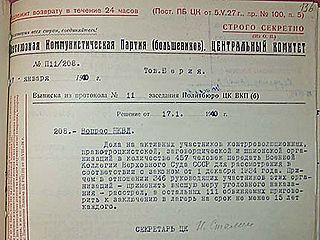
Party-list proportional representation is a subset of proportional representation electoral systems in which multiple candidates are elected through their position on an electoral list. They can also be used as part of mixed-member electoral systems.

A political party is an organization that coordinates candidates to compete in a particular country's elections. It is common for the members of a party to hold similar ideas about politics, and parties may promote specific ideological or policy goals.

A politburo or political bureau is the executive committee for communist parties. It is present in most former and existing communist states.

A one-party state, single-party state, one-party system, or single-party system is a type of sovereign state in which only one political party has the right to form the government, usually based on the existing constitution. All other parties are either outlawed or allowed to take only a limited and controlled participation in elections. Sometimes the term de facto one-party state is used to describe a dominant-party system that, unlike the one-party state, allows democratic multiparty elections, but the existing practices or balance of political power effectively prevent the opposition from winning power.

A paramilitary organization is a semi-militarized force whose organizational structure, tactics, training, subculture, and (often) function are similar to those of a professional military, but is not part of a country's armed forces. Paramilitary units carry out duties that a country's military or police forces are unable, or sometimes unwilling, to handle.

In a first-past-the-post electoral system (FPTP); formally called single-member plurality voting (SMP) when used in single-member districts, or (informally) choose-one voting in contrast to ranked voting or score voting), voters cast their vote for a candidate of their choice, and the candidate who receives the most votes wins. FPTP is a plurality voting method, and is primarily used in systems that use single-member electoral divisions. FPTP is used as the primary form of allocating seats for legislative elections in about a third of the world's countries, mostly in the English-speaking world. The phrase is a metaphor from British horse racing, where there is a post at the finish line.
Regionalism is a political ideology which seeks to increase the political power, influence and/or self-determination of the people of one or more subnational regions. It focuses on the "development of a political or social system based on one or more" regions and/or the national, normative or economic interests of a specific region, group of regions or another subnational entity, gaining strength from or aiming to strengthen the "consciousness of and loyalty to a distinct region with a homogeneous population", similarly to nationalism. More specifically, "regionalism refers to three distinct elements: movements demanding territorial autonomy within unitary states; the organization of the central state on a regional basis for the delivery of its policies including regional development policies; political decentralization and regional autonomy".
Lists of political parties include:





